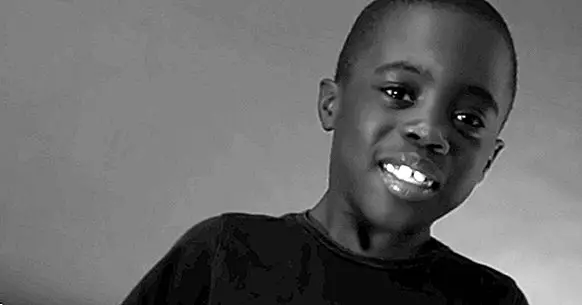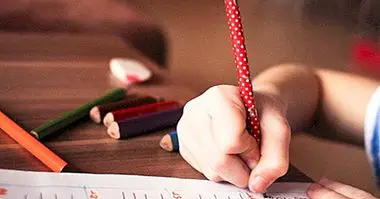'Dear Professor': a video to understand the student with ADHD
The majority of children with Attention deficit disorder and hyperactivity o ADHD manifests an incongruous behavior: they are smart and cunning, but their performance in the classroom is poor, they show disinterest, they do not remain in a physical listening position and they even develop less disciplined and challenging attitudes.
In the following interview, Mireia Garibaldi, psychologist and psycho-pedagogue collaborator of the Mensalus Psychological and Psychological Assistance Institute, presents an interesting video about the problems that surround children with ADHD in the classrooms. An emotional project that, we hope, opens a reflection on the necessary psychopedagogical tools.
Before reading the article, you can watch the video below:
How is the relationship between ADHD and emotional management?
Children with ADHD (Attention Deficit Hyperactivity Disorder) present significant difficulties to self-regulate and manage their emotions. Something that initially is not easy for most, is especially expensive for them. To be more exact, one of the complicated tasks is the ability to internalize and reserve emotions. For this reason, children with ADHD, sometimes express their feelings in an intense and uncontrolled. What do they end up seeing others? An immature behavior ("always making the clown"), inappropriate, changing and even heavy (the externalization of the emotion lasts longer than in the rest of equals). The adult has difficulty understanding that this behavior comes, among other factors, due to the difficulty in emotional management, so the common outcome in the classroom is repetitive punishment: sanctions that label the child and place him in a highly defensive setting.
What is the most common emotion among children with ADHD?
When the efforts are in vain, the result is a sea of frustration. With this, self-concept can be seriously affected. The video we present today justly claims the importance of "not pointing" to the child with ADHD. In his process of development and maturation, it is crucial to avoid actions that make him feel constantly judged. If all the fingers point to him daily, he may grow from an anxious and insecure base, and end up forming a very deteriorated self-concept that leads to low self-esteem.
You told us about a defensive framework in which the child is enclosed ...
True. A defensive frame fruit of the fear of being hurt again. It is common for the child to challenge the figure of authority and manifest himself irreverently. As we said, when this happens, punishment is the main tool ("class salt", "today you run out of court") and again the child is discriminated against and labeled as "the bad guy". The consequence? The frustration reaches unsuspected levels and its management becomes "mission impossible".
What can happen then?
Before assuming a new failure, one of the most used strategies is lying (for example, lying to justify that you have not brought the duties done). Likewise, it is common that the outcome of the difficult emotional self-management is a behavior full of anger and irritability visible physically (kicks, jumps, grimaces, etc.) and verbally (bad responses to the teacher's guidelines). The child with ADHD is very dependent on the environment. The self-regulation of their emotions and their behavior responds more to the stimuli they receive than to their own thoughts (something that, from the outset, is already common in infants). Be that as it may, the difficulty of doing a work of introspection and attending to one's own thoughts takes you away from tools such as the analysis of events, reflection and the setting of goals. For this reason, it is essential to help the child.
How can we help the child with ADHD?
Through the use of more attractive and visual strategies that promote emotional expression and collaborate in this internalization. When the child is able to understand what is happening to him, it is then that he takes a first step towards emotional self-regulation. Training the child in this sense is essential since, otherwise, he may enter a spiral of sadness and negativity that alienates him, not only from academic goals, but also from the context of friends and colleagues.
On the other hand, children with ADHD have an important difficulty motivating themselves. They have serious problems at the time of beginning the prescribed work and sustain the activity until its completion. This difficulty is accompanied by a high need to be gratified in the short term (mainly after tasks that are not especially attractive and do not generate a reward instantly).Returning the child with an acknowledgment makes it easy to remain connected to the context (for example, a game, a sports activity, a math exercise, etc.)
From Psychopedagogy we advise parents and teachers to establish a recognition system through positive messages. The lack of internal motivation is the main driver of the lack of objectives and the self-discipline to achieve them.
That said, with what message could we stay today?
As the video shows, it is important that children with ADHD perceive the social approval of the surrounding environment through rewarding messages, words that approximate the rest and not dismiss them as disinterested or other derogatory labels that diminish their sense of ability. They depend emotionally on positive recognition and, of course, they need adults to facilitate their work.
Understanding the child with ADHD is the way for him to do so too.
- Related article: Piper: an endearing short on the ability to overcome



















